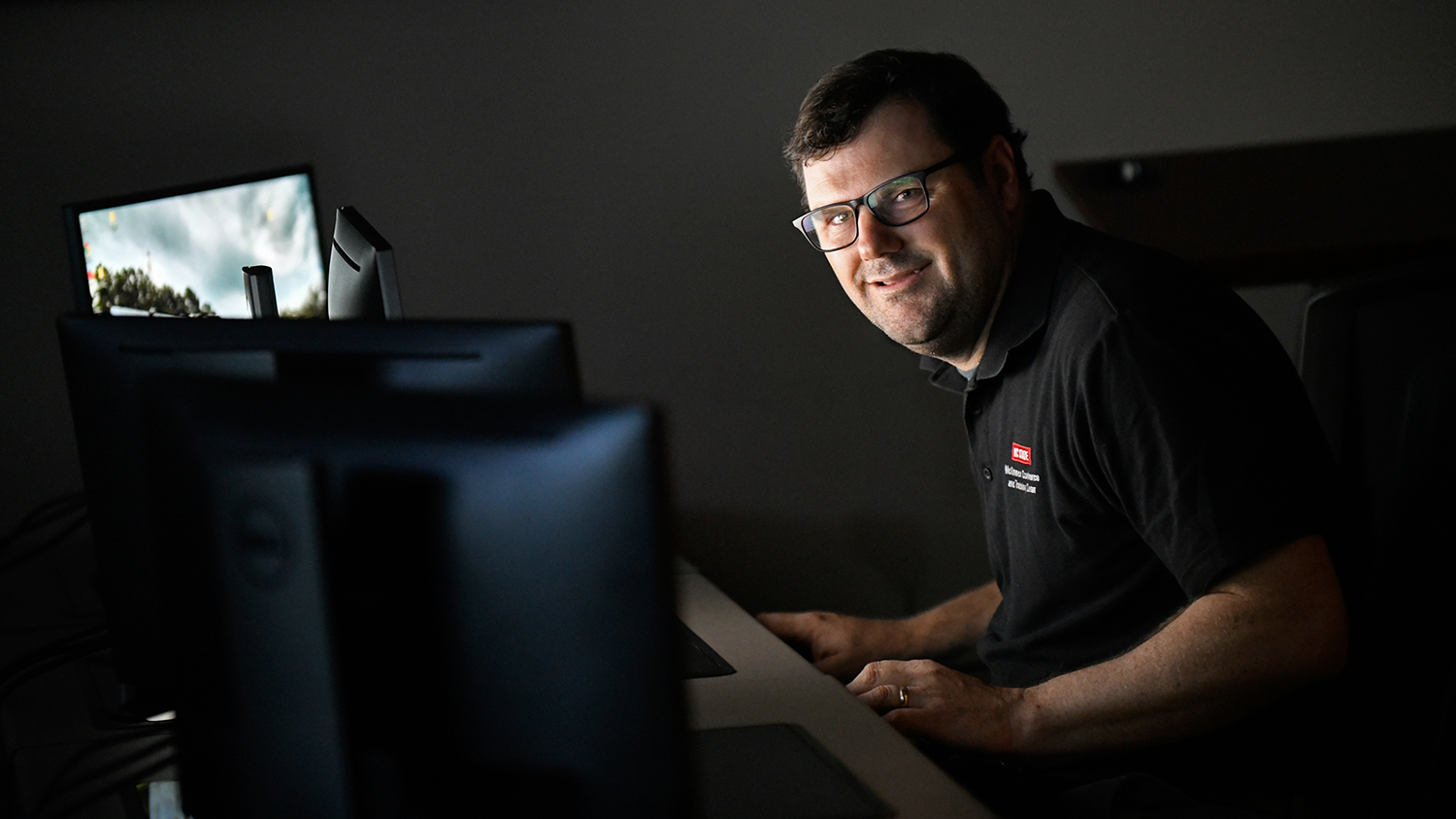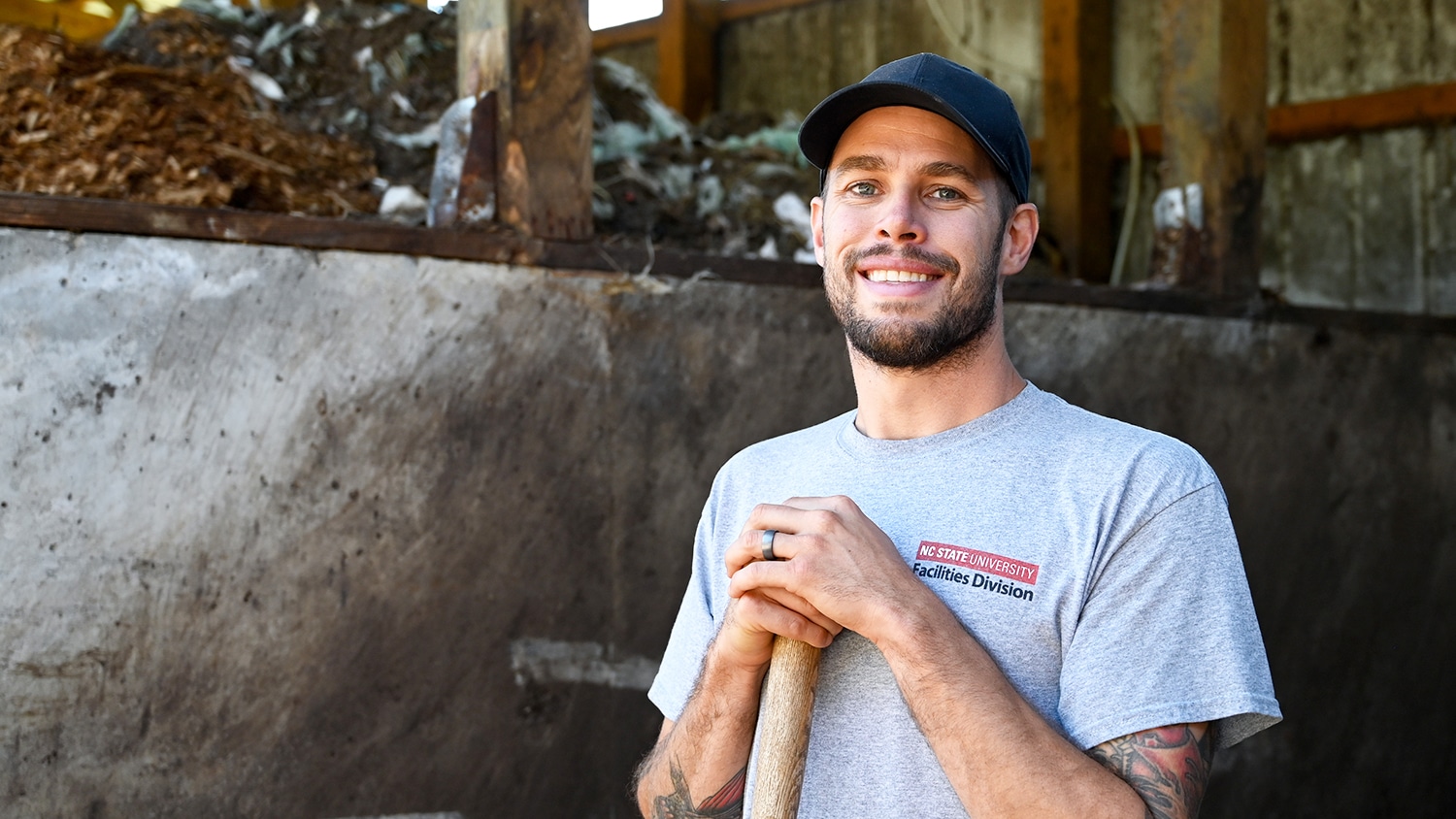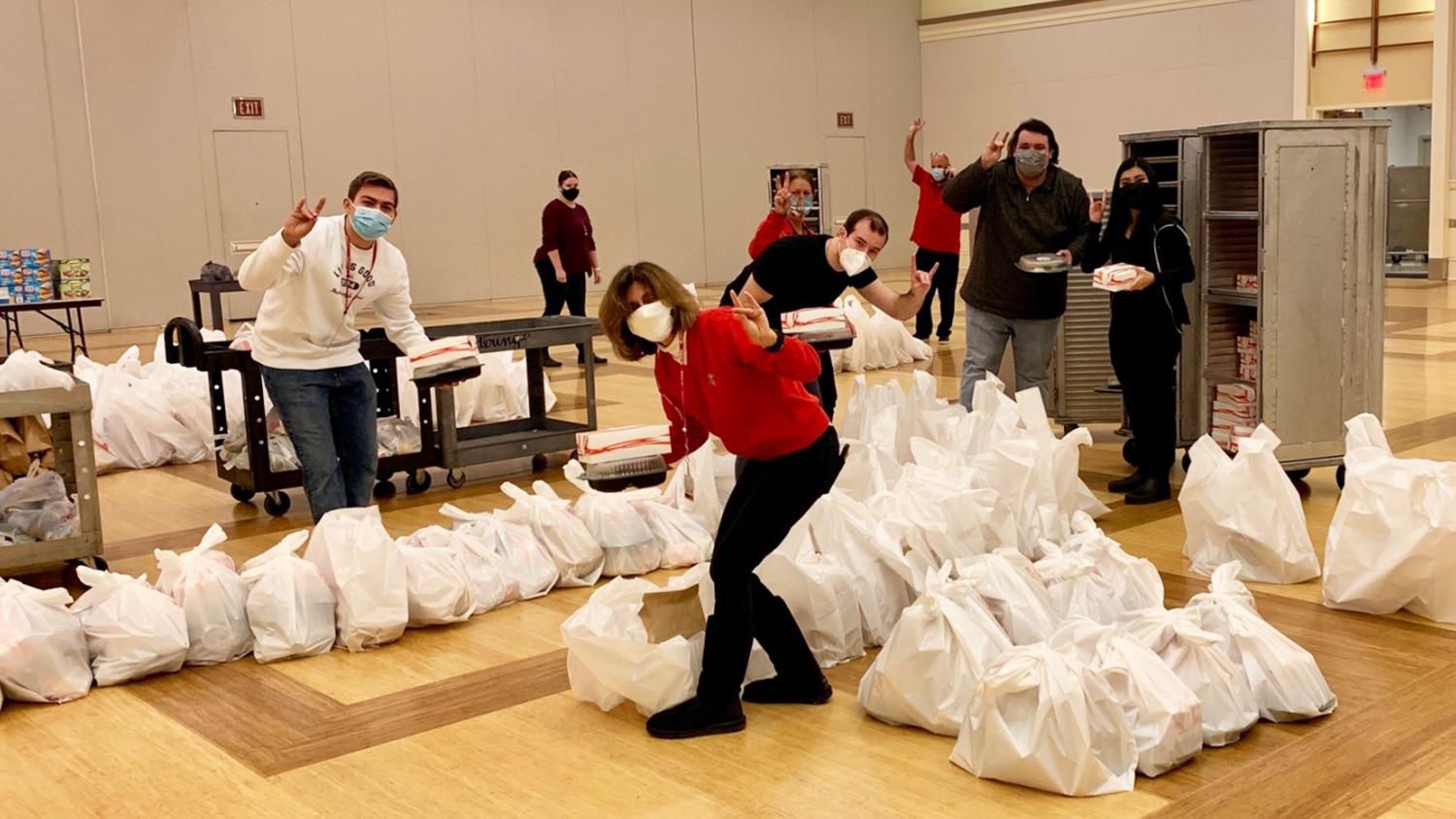Meet McKimmon’s Zoom Whisperer
Instructors offering courses through the McKimmon Center get some virtual hand-holding from emerging media expert Rob Chapman.

In the early days of the internet, it wasn’t unusual for people to struggle with the new and confusing technology of email. History is rife with stories of business executives who couldn’t figure out how to add attachments or find the “reply all” button.
But let’s not get too smug. If you’ve struggled to share your screen or mute your microphone in Zoom, the wildly popular teleconferencing program, you know exactly what folks were going through back in the 1990s.
History doesn’t have to repeat itself. Instructors providing courses and lectures through the McKimmon Conference and Training Center are largely avoiding the pitfalls of the past as they embrace new technologies in the age of COVID-19. Thanks to broadcast and emerging media specialist Rob Chapman, they’re getting behind-the-scenes assistance to navigate Zoom’s myriad preferences and settings so they can deliver the optimal online experience.
“My primary day-to-day job is to manage classroom technology for all of our meeting spaces,” Chapman says. “We have up to 24 meetings going on at any given time, so I’m part of a team that helps the instructors with equipment like laptops and projectors.”
Courses Continue Remotely
With courses now being delivered online due to the pandemic, Chapman’s expertise is in high demand.
In June alone, McKimmon’s Office of Professional Development is offering 18 Zoom courses in topics ranging from project management and Excel to Google Analytics and Python. And NC State’s Osher Lifelong Learning Institute — nicknamed OLLI — is cueing up Zoom lectures in subjects like personal filmmaking and the future of heirloom chrysanthemums.
“The OLLI courses are for adults over 50, and OLLI is just a big part of their lives, giving them a place to socialize and learn,” Chapman says. “And so it’s been really important to keep those going on.”
Chapman meets with course instructors online about a week before their courses begin to walk them through various tips and tricks for working with Zoom. The web-based teleconference program is relatively intuitive, he says, but it’s best to look under the hood before you take it for a drive.
“For instructors that haven’t really used Zoom before, it takes about 25 minutes to go over everything with them. For people who are more familiar with it, it’s just takes five or 10 minutes,” he says.
Zoom, Interrupted
In addition to showing instructors how to share their screens, he explains the functionality of both the chat window and the participants window. “The participants window has a mute feature, which is really important when you’re teaching a course with 170 participants,” Chapman says.
He also recommends a few security measures, such as making sure to always password protect your Zoom meetings.
“The easiest way to avoid having anyone disrupt your meeting is to turn off screen sharing and annotations for anyone who’s not an instructor or co-host,” he says. “And there’s a setting that prevents someone from returning to the meeting after they’ve been kicked out.”
That’s right. Zoom-bombing — intruding into and disrupting a teleconference — is a thing now.
“We’ve only ever had one Zoom-bombing. And that was when an instructor shared the link to the meeting on his blog. Somebody found that and came into the meeting and caused chaos,” Chapman explains.
Chapman also hosts a meeting with course participants before the first day of class to help them get the most out of Zoom and to troubleshoot problems with webcams and wireless connections. Of course, he can’t foresee every issue.
“We had somebody a couple of weeks ago change their child’s diaper right in front of their camera,” he says with a sigh. “It was kind of awkward.”
- Categories:


